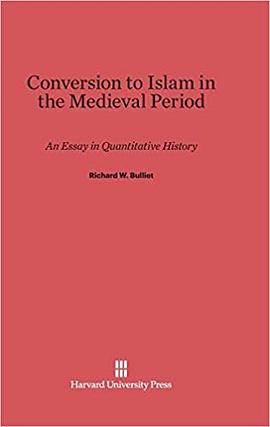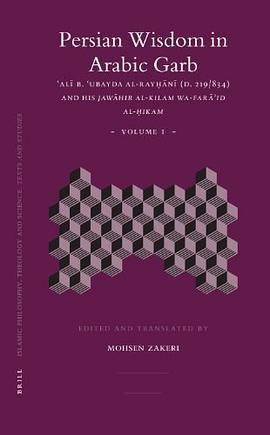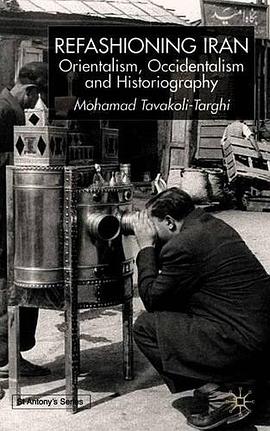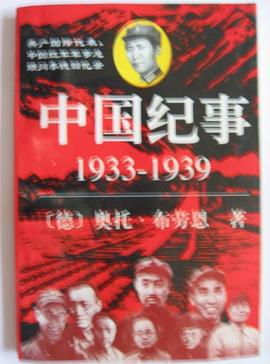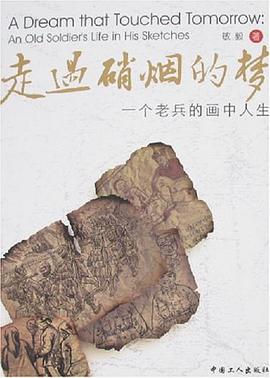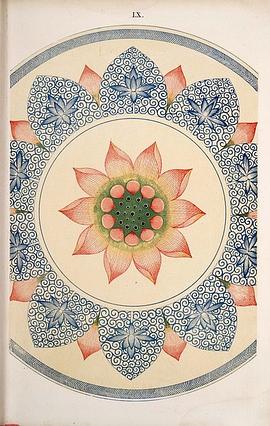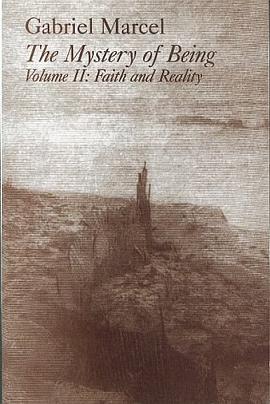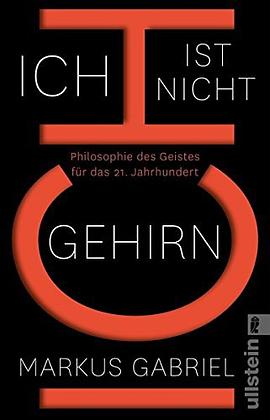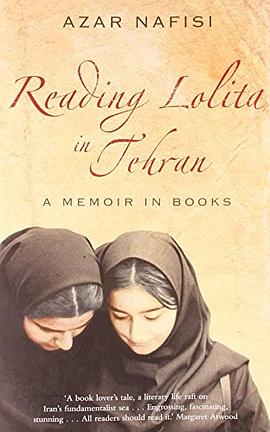

具体描述
An inspired blend of memoir and literary criticism, Reading Lolita in Tehran is a moving testament to the power of art and its ability to change and improve people's lives. In 1995, after resigning from her job as a professor at a university in Tehran due to its repressive policies, Azar Nafisi invited seven of her best female students to attend a weekly study of great Western literature in her home. Since the books they read were officially banned by the government, the women were forced to meet in secret, often sharing photocopied pages of the illegal novels.
For two years they met to talk, share and "shed their mandatory veils and robes and burst into color". Though most of the women were shy and intimidated at first, they soon became emboldened by the forum and used the meetings as a springboard for debating the social, cultural and political realities of living under strict Islamic rule. They discussed their harassment at the hands of "morality guards," the daily indignities of living under Ayatollah Khomeini's regime, the effects of the Iran-Iraq war in the 1980s, love, marriage and life in general, giving readers a rare inside look at revolutionary Iran. The books were always the primary focus, however and they became "essential to our lives: they were not a luxury but a necessity", she writes.
Threaded into the memoir are trenchant discussions of the work of Vladimir Nabokov, F Scott Fitzgerald, Jane Austen and other authors who provided the women with examples of those who successfully asserted their autonomy despite great odds. The great works encouraged them to strike out against authoritarianism and repression in their own ways, both large and small: "There, in that living room, we rediscovered that we were also living, breathing human beings; and no matter how repressive the state became, no matter how intimidated and frightened we were, like Lolita we tried to escape and to create our own little pockets of freedom." In short, the art helped them to survive. --Shawn Carkonen, Amazon.com --This text refers to an out of print or unavailable edition of this title.
'Communicates brilliantly the terrifying moral absolutism of a state which believes that to write of adultery is to condone it.'
'The use of Lolita, Gatsby etc. as metaphor is exquisite.'
A remarkably original account of one woman's experience of the Iranian revolution, generously interspersed with erudite passages of literary criticism. --This text refers to an out of print or unavailable edition of this title.
作者简介
阿扎尔•纳菲西(Azar Nafisi)
伊朗裔美国女作家、学者、评论家。
1955年生于伊朗,13岁赴海外留学,26岁时获得美国俄克拉荷马州立大学文学博士学位。后归国任教于德黑兰大学等三所高校,但因在女性的穿着与行为等问题上与校方产生严重分歧而被辞退。1997年纳菲西返回美国,以访问学者的身份就职于约翰•霍普金斯大学。
除此书以外,纳菲西还在《纽约时报》、《华盛顿邮报》、《华尔街日报》等主流媒体上发表文化批评专栏,如今已成为美国炙手可热的评论家。
目录信息
读后感
http://www.douban.com/event/25777973/discussion/612935358/ 根据活动录音整理而成,已经校对,有些许次序的调换和语句的修改。 我的部分,基本是自己做的整理。 张阅:请问在座的各位,有没有在伊斯兰地区的朋友?那么日本朋友或者台湾朋友呢? 有的吧...
评分(面纱之下,她们用阅读抵抗世界——阿扎尔·纳菲西新书分享会总结) 维舟 张念 原载 澎湃新闻·翻书党 【编者按】 在《在德黑兰读<洛丽塔>》中,伊朗作家阿扎尔·纳菲西讲述了一个秘密阅读的故事;在《我所缄默的事》中,她讲述一个动荡时代的伊朗家庭的秘密故事。维舟和张...
评分 评分采用的是台版翻译,有些书名人名跟大陆习惯的译法有所不同,这里顺手列出来,给大家一个便利咯: 根据阅读进展不断更新中,以首次出现为序 (书中台译/通用陆译) 《斩首的邀请》/《斩首之邀》 雪赫拉莎德/舍赫拉查德 《塞巴斯钦·奈特的真实生活》/《塞巴斯蒂安·奈特的真实生...
评分一开始这本书的书名让我想起罗伯特•瓦尔泽一个迷人的短篇,叫《意大利小说》。它描述了一个男青年读完某小说后的剧烈情绪变动。此情绪变动进而发展成极其戏剧化的行为——我总觉得这事态既神秘又可爱,神秘的是你不知道在人心哪块风平浪静的表面下就藏着一颗兴风作浪的种子...
用户评价
说实话,一开始我抱着一种审视的态度去阅读的,毕竟这样的书名很容易让人产生一些预设的联想。然而,这本书很快就将我带入了一个完全出乎意料的领域。它展现了知识分子在特定社会结构下的生存困境与精神坚守,那种夹缝中求生存的智慧和勇气,读来令人动容。作者的叙述视角非常独特,她没有采取那种宏大叙事或激烈的控诉,而是通过日常生活的细节、书本和阅读这些精神食粮来侧面反映了环境对人的塑造和压抑。每一次翻页,都像是在揭开一层层现实的迷雾,看到那些隐藏在表面之下的暗流涌动。我特别喜欢那些关于友谊和互相扶持的描写,在看似压抑的氛围中,这些微弱却坚韧的光点显得尤为珍贵,它们证明了人性的美好和不屈服的力量,让这本书的整体基调在深刻之余,也充满了希望的微光。
评分从情感共鸣的角度来看,这本书的感染力是极其深沉和内敛的。它没有使用煽情或夸张的语言去强行调动读者的情绪,而是通过精准到位的情感描摹,让悲伤、压抑、渴望自由的情绪自然而然地渗透出来,像温水煮青蛙一样,等你意识到的时候,你早已深陷其中,感同身受。书中的人物形象塑造得极为立体丰满,他们有明显的缺点,也有令人敬佩的坚持,这些真实感让他们的困境变得触手可及。我时常会代入其中某一个角色的视角,去体会那种在巨大压力下,依然努力维持体面和精神独立的挣扎。这种由内而外散发出的情感力量,比任何外放的戏剧冲突都要有力得多,它直击人心最柔软的部分,让人在读完很久之后,依然会因为想起某个场景或某句独白而心头一紧。
评分这本书最让我欣赏的一点是其文化批判的锋芒,它以一种极其优雅的方式完成了对特定社会文化现象的深刻剖析。作者的笔触冷静而犀利,她没有直接进行说教,而是通过展示个体在僵化体制下的日常选择和内心博弈,让读者自己去体会其中的荒谬与无奈。阅读过程中,我不断地被触发思考:我们所珍视的“自由”究竟意味着什么?知识和美学在强权面前是否有抵抗的力量?这种对存在主义层面的追问,让这本书的价值远远超出了单纯的小说范畴。它更像是一面镜子,映照出任何时代、任何文化背景下,知识分子都可能面临的道德困境和身份认同危机。这种跨越地域和时空的普适性思考价值,是这本书能够持久流传的根本原因之一,它迫使我们重新审视自己所处的环境与精神家园的建设。
评分这本作品的结构布局处理得非常巧妙,像一个精密的万花筒,将不同的时间线和人物的内心世界碎片化地呈现,但最终又和谐地汇聚在一起,形成一个完整的、令人信服的画面。我发现自己必须全神贯注地阅读,任何一点走神都可能错过作者埋下的伏笔或者微妙的暗示。它挑战了传统线性叙事的舒适区,反而因此带来了更强烈的代入感和探索欲。阅读的过程更像是一场智力上的冒险,读者需要主动参与到意义的构建中去。那些看似松散的段落,一旦联系起来,就会爆发出惊人的能量,揭示出某种深层次的真理。这种需要读者付出努力去“解密”的阅读体验,是许多当代文学作品难以企及的高度,它奖励了那些愿意深入思考、不满足于浅尝辄止的读者,让人在完成阅读后,有一种智力上被充分满足的充实感。
评分这本书的文字功底简直是炉火纯青,每一个句子都像经过精心打磨的宝石,闪烁着独特的光芒。作者对于叙事节奏的把握拿捏得恰到好处,时而轻描淡写,时而又深入骨髓地刻画人物的内心挣扎。我尤其欣赏她那种不动声色的力量感,不动声色地将宏大的时代背景与个体命运的细微涟漪编织在一起。读起来,我感觉自己被一种强大的引力牵引着,不由自主地沉浸在那个特定的时空里,呼吸着那里的空气,感受着那些复杂的情绪。有时候,我会为了某个精妙的比喻停下来,反复琢磨其中的深意,然后由衷地感叹文字的魅力。它不仅仅是讲述一个故事,更像是在搭建一个立体的世界,里面的每一个角落都充满了生活的质感和深刻的思考,让人在合上书本后,仍旧能清晰地感受到那些文字带来的余韵悠长,那种久久不散的震撼感和回味无穷的况味,实在是一种难得的阅读体验,让人对作者的才华深感折服。
评分 评分 评分 评分 评分相关图书
本站所有内容均为互联网搜索引擎提供的公开搜索信息,本站不存储任何数据与内容,任何内容与数据均与本站无关,如有需要请联系相关搜索引擎包括但不限于百度,google,bing,sogou 等
© 2026 book.quotespace.org All Rights Reserved. 小美书屋 版权所有






